.
by Amanda Arista, Kim
Falconer, & Helen Lowe
.
Introduction
Stories that make the heart beat faster are a big part of what we’re all about, here on Supernatural Underground (SU).
 |
And now we’re in the time of year, from Halloween, through Thanksgiving, Hanukkuh, and Christmas, to New Year, that’s all about festival and celebration—of fire and candlelight in the midst of winter’s dark in the northern hemisphere, and of bright days and midsummer stars in the south.
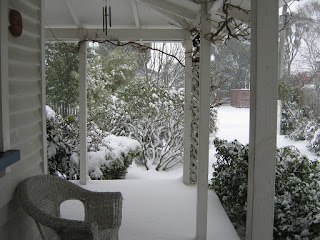 |
| Winter... |
Most of all, whether north or south, it’s the season of coming together with others and of storytelling (as well as food, fizz, and gifts!) As individuals and communities, we tell our tales of the year that’s been: of the challenges experienced and also what’s lifted us up; of those we’re missing and those we look forward to meeting again. We weave our magic of hope and commitment to each other, in order to not only keep going, but advance with renewed resolve into the year ahead.
 |
| Summer: Pohutakawa, the NZ "Christmas tree" |
With the celebrations
in full swing and the year’s end imminent, we were reflecting on all these
elements of celebration, festival and fiction—which brought us to this post,
not only to share our insights into how the elements manifest, but why we believe
they matter.
~*~
Amanda Arista: The Real Magic of Santa Claus
Santa Claus is my favorite holiday story. A man so imbued with the spirit of wonder, so empowered with good will, he can visit every good child in one night to give presents, with a magic more powerful than time and space. I still enjoy watching movies like Santa Claus: The Movie (1985), The Christmas Chronicles (2018), The Santa Clause (1994), Arthur Christmas (2011) and my personal favorite as a kid that honestly probably explains a LOT about the genre that I write, The Life and Adventures of Santa Claus (1985).
 |
Now, if you read anything that I’ve written in the past ten years, you’ll know that in my book, that makes Santa a hero, and his elixir for his heroic moment was immortality, so he could give magic to all the children in the world forever.
Told you it was the best story.
 |
But as a parent who knows that Santa is just that, a story, I still wanted to maintain that wonder in my child. So what do I do? I do what the story tells me. I hide presents. I stay up late and sneak them under the tree, quiet as a mouse. I take a bite of the cookies and carrots we leave out for Santa. Is this heroic? Perhaps not. It’s hardly a Supreme Ordeal by any means, but it is doing something just as special.
It’s creating magic in the real world. It’s creating wonder in the real world. A tangible wonder that exists for my child, a magic that tells her that the impossible can be done. A sparkle in her eyes that lets her imagine. If presents can appear under the tree just like in the stories, what else in the real world is possible? What else can be imagined?
 |
Now yes, I know the wonder will end when she gets older, and for a while, she will begrudge the big ‘lie’ that is Santa. We have all been there. We all remember the moment our belief in magic faltered. Honestly, this might be the first ordeal we have as children. The realization that some of the magic in the world is just a story.
Some of the magic in the world is just a story. Not all. What I hope is that instead of becoming a miserly Scrooge and never being able to experience the magic of Christmas again, she becomes an Elf, a helper, a believer, a magic-weaver in her own right. I hope that I have done my part to show her that you can now create magic for someone else, allow them to feel that magic, know that wonder.
 |
Until next time, dear readers.
Happy Holiday,
Amanda Arista
Kim Falconer: The Ins and Outs of Celebration
Celebrations matter. No doubt about it! They bring a sense of belonging, fulfilling basic human needs like certainty, significance, connection and contribution. This importance in celebration has been recognized for thousands of years as seen with the transition of Saturnalia to Christmas, Equinox to Easter, Samhain to Halloween… we need these times on the calendar in real life, and in our fiction too.
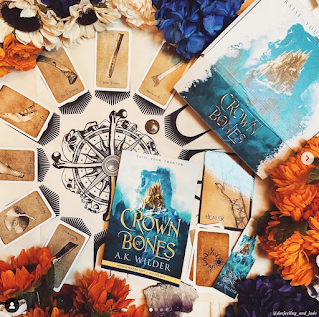 |
| Celebration matters... |
For example, authors will use festivals and special dates to situate readers in the culture of their story world. It’s a ‘picture worth a thousand words’ backdrop to the plot that lifts the spirts and animates the action. Admit it, celebrations, real or imagined, are just plain fun!
Unless, of course, you are on the outside looking in.
This outsideness happens more than we know, for a variety of reasons: different belief systems, estranged families, black sheep syndrome and other causes of isolations and disconnection. In real life, it can be crippling; in fiction though, it’s pure motivation.
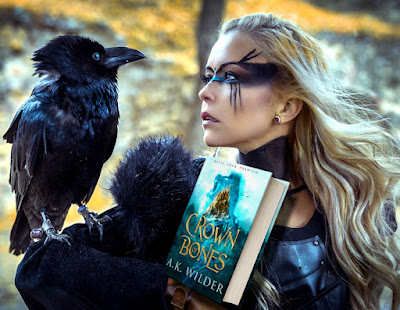 |
| Salila in the "Amassia" series |
The ‘outsider’ character comes into its own in Fantasy. There is so much to work with from a child raised by wolves, aliens or demons to the hero who can’t conform. These themes offer infinite possibilities for writers. They also offer the chance for readers to experience nonconformity, or perhaps honor times in their lives when they were very much on the outs. (Most of high school comes to mind for me.) The outsider trope can also allow readers to see exclusion turned into an asset.
A classic example of this is Aragorn from Tolkien’s LOTR. While the rest of the world dines and dances, he hangs back, watching. Protecting. Eventually, he is crowned King, but for most of the story, he is on the outside looking in.
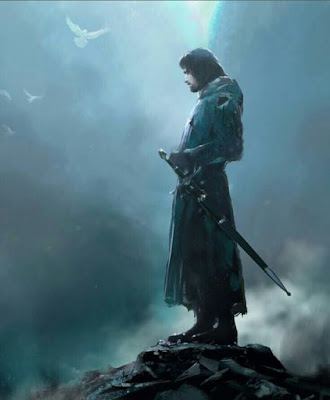 |
| Aragorn |
Sleeping Beauty is another example where the entire tale pivots around exclusion. The overlooked fairy that was not invited to the celebration arrives anyway, with a hopping mad curse. In Fantasy, exclusion can bring the gold, the development of inner gifts that otherwise wouldn’t be utilized if the hero had been accepted (or curse-free) from the start.
More than a single character, it might an entire culture that has been pushed out, as in Children of Blood and Bone by Tomi Adeyemi.
They
killed my mother.
They took our magic.
They tried to bury us.
Now we rise.
 |
There are so many other examples: Ropa in L. T. Huchu’s Library of the Dead, Raia in Sarah Beth Durst’s Race the Sands, Aria in Under the Never Sky. N. K. Jemisin's Broken Earth trilogy, Brian Naslund's Dragons of Terra series … the list goes on.
True to my genre, I utilize both celebrations and ‘outsideness’ to build a more believable world and throw characters into the deep end of the sea, literally. The hope is they swim, though there is always the risk that they won’t.
For example, Marcus, in Crown of Bones, is a conformist, on the inside, educated in the Sanctuary, heir to the throne, raiser of a warrior phantom. It seems like he has it all, until he loses his throne, is exiled and his phantom goes rogue.
 |
Ash, on the other hand, begins the journey an outsider. She is the only non-savant with little rank and status. But the exclusions she faces make her stronger, more resilient. In Curseof Shadows, it is she who has the strength to… well, you’ll have to decide if it was all worth it...
As Rilke says:
“…only
someone who is ready for everything, who doesn't exclude any experience, even
the most incomprehensible, will live the relationship with another person as
something alive and will himself sound the depths of his own being.”
 |
This holiday season, I find myself wondering how my own life story might change if I could, as Rilke describes, experience everything and exclude nothing… so much so, I am making it my New Year’s resolution.
With that, I wish you all happy reading, writing and dreaming on into 2022.
~*~
Helen Lowe: Together and Alone – Story, Magic, & Real Life
As a child, my Christmas–New Year drew on the same tradition as Amanda, with the ‘coin flip’ of being in the Southern Hemisphere, which transformed both into summer festivals. Christmas was still very much the “big” festival of the year, though, and I remember it as a magical time. Family was front and centre, and we did “all the things”: decorations, carol singing by candlelight (we had to stay up late for that, being midsummer!), special festive food – and, of course, presents!
 |
| A traditional Christmas |
I’m sure I’m not alone in recalling staying awake to try and witness Santa’s arrival, watching the flicker of the Christmas lights – then waking to Christmas morning and having to wait until the whole family was present for the grand unwrapping!
New Year, of course, being high summer, was always about bbqs and picnics at the beach: yelling, running, and sand with everything – equally magical in its way.
 |
| New Year at the beach |
Family, community, togetherness, and the rituals of gifts, food, and storytelling, from the 2000-year-old Christmas story to the family yarns of Christmases and New Years’ past: looking back, I can see how those elements formed our season of celebration.
As a young woman, however, I experienced being Kim’s “outsider looking in.” At the time, I was living overseas, and never felt aloneness more keenly than during Christmas–New Year.
When reading Russell Janney’s The Miracle of the Bells (1946) some years later, I agreed with the narrator’s observation that, “No one but a homeless man can understand the utter loneliness of a stranger on Christmas Eve in a ‘city of homes.’”
 |
Yet during that first Christmas alone, I was fortunate in being able to make common cause with others who were similarly circumstanced, forging our own small community of togetherness. Some did not have family or community available, for various reasons as Kim says. But many were also from other countries, often with different cultures and religions, festivals and celebrations. In getting together, we were able to share those traditions and our stories of home – and found we experienced something new, and rewarding, through our sharing of traditions, stories, and “found community.”
 |
| Shared traditions |
In the midst of aloneness, I also found another magic – that of experiencing my first “white Christmas”, where lighting candles began early in the afternoon! I will never forget walking to my “found community” gathering as the snow started falling. I felt a little like Mr Tumnus, in fact, with my woollen scarf (only the last among many other layers!), my arms full of my “NZ festive” contributions, and snowflakes fluttering past a nearby lamppost. No umbrella, though! ;-)
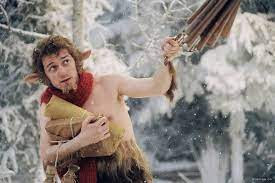 |
| Mr Tumnus_The Lion, the Witch and the Wardrobe film |
So when undertaking Fantasy worldbuilding, it’s perhaps not surprising that my mind turns to festivals and celebratory traditions, whether establishing identity and culture, as in The Heir of Night, or where characters, such as Malian and Kalan in The Gathering of the Lost, must make their way in strange lands.
 |
Yet as an
author, I also recall how in experiencing the magic of my first winter Christmas,
I recaptured the delight of my first encounter with Narnia’s fictional world. In that moment, I
lived AS Byatt’s wonderful quote:
"Think of this – that the writer wrote alone, and the reader read alone, and they were alone with each other."
And in my case, the midwinter night, and the streetlight, and the falling snow – yet because of that moment, I never question the value of telling stories or of reading them, in terms of remaining connected to “real life.”
 |
So wherever you are in your story, this holiday season, I hope you’ll find a little magic to keep you company.
~*~
About The Authors:

About Amanda Arista:

Amanda was born in Illinois, raised in Corpus Christi, and lives in Dallas, but her heart lies in London. Good thing she loves to travel!
Amanda is the author of the Diaries of an Urban Panther series and The Merci Lanard Files. A graduate of the SMU Creative Writing Program, she now teaches other aspiring authors and loves discussing craft, character, and structure.
You can usually find Amanda curled up on her couch with a varied menagerie of dogs or lizards, writing away, or otherwise on Facebook: https://www.facebook.com/pantherista/ She tweets: @pantherista
.

About Kim Falconer:

Kim Falconer, currently writing as A K Wilder, can be found on Twitter, Facebook and Instagram.
Or pop over to throw the bones or Raise Your Phantom on the AKWilder.com site
..
.

About Helen Lowe:

Helen Lowe is an award-winning novelist, poet, and lover of story. With four books published to date, she is currently completing the final instalment in The Wall Of Night series.
Helen posts regularly on her “…on Anything, Really” blog, monthly on the Supernatural Underground, and tweets @helenl0we.
.
.
See you all on the other side—in 2022!
 |

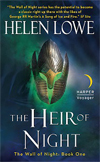
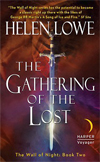
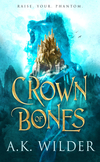
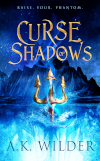
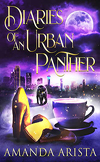
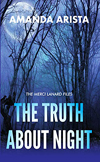

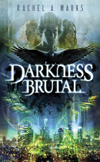
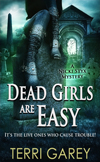
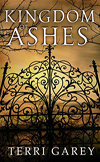
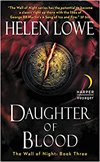
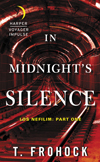
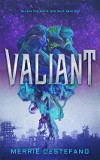
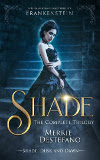

No comments:
Post a Comment